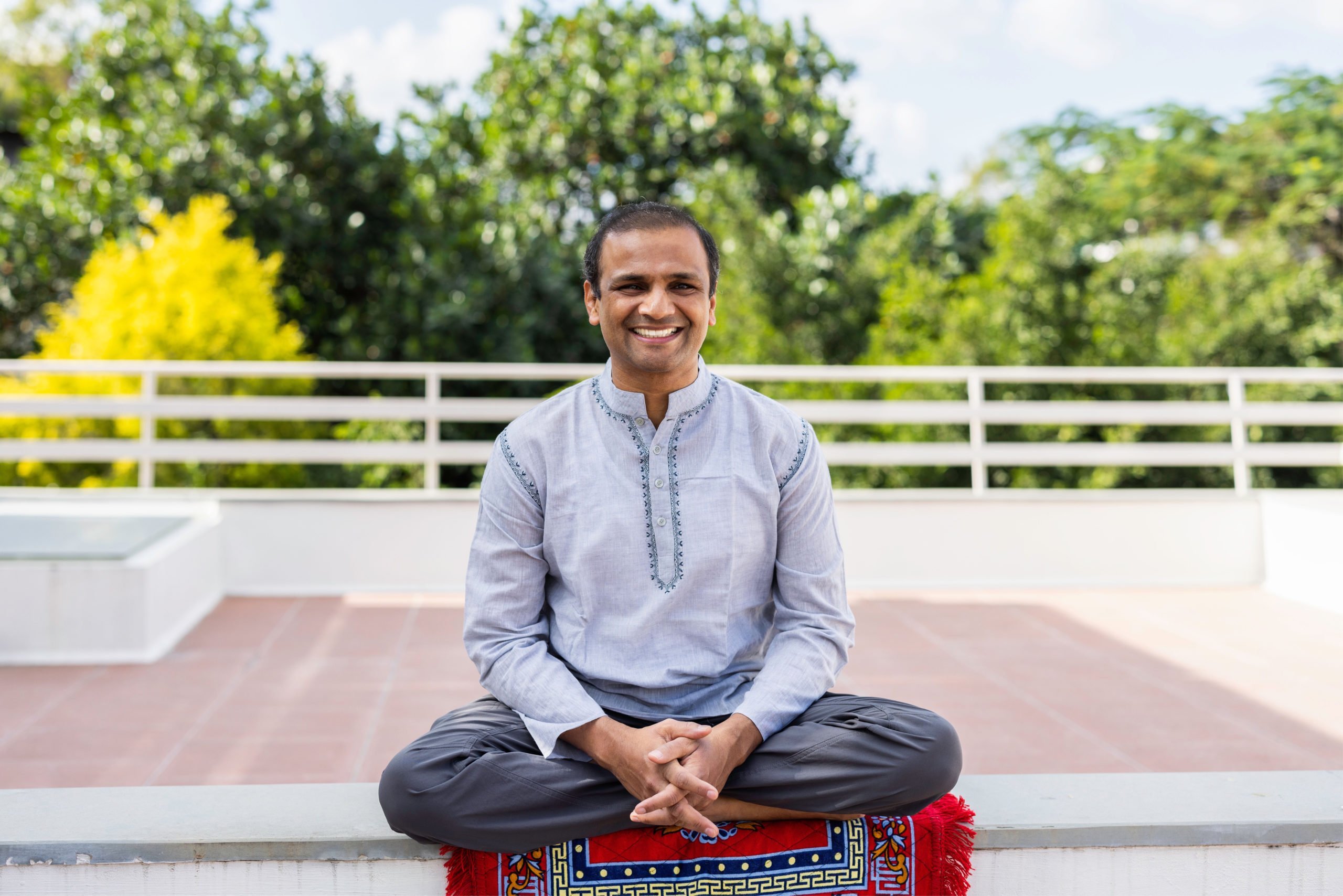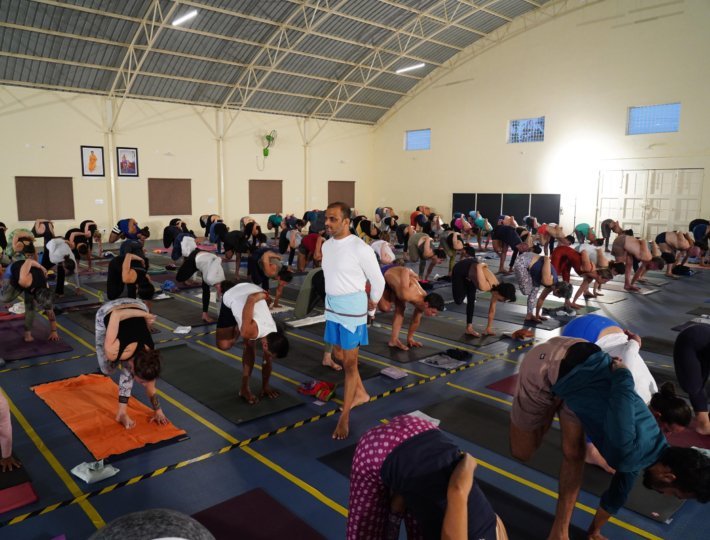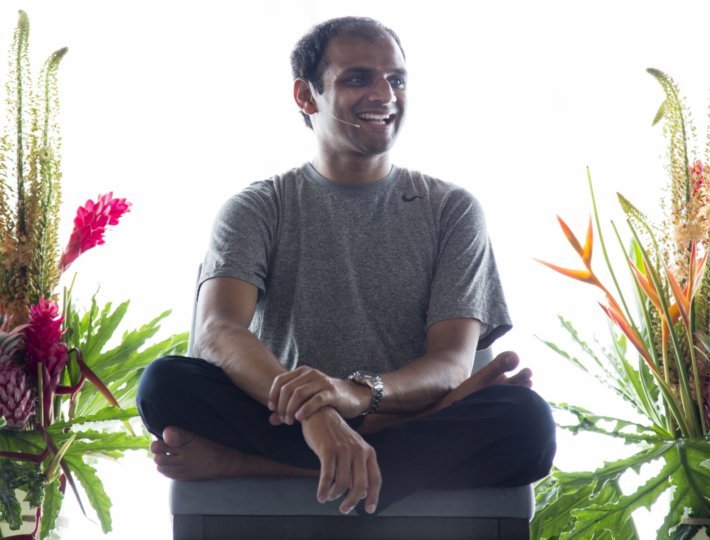One night, some months ago, I had a drink with my friend Rodney and casually mentioned a woman I am dating. “Oh man,” Rodney said, “you’re already in love with her. I can tell! You fall in love so much. You’re probably in love with this table we’re at after 20 minutes of being here.”
“What can I say?” I replied. “It’s a nice table.”
Jokes aside, I was left contemplating my meditation practice and how it has made me more able to love—and not just in relationships. After a lifetime of consistent meditation practice, I can say without a doubt in my mind that the more I meditate, the more I realize it is a training in falling in love.
In my experience, the first step in this process is to realize that you are basically whole. The type of meditation I often teach is known as “shamatha,” or “calm-abiding.” It is the practice of returning to the breath, over and over again, despite the various forms of distraction that rear their ugly head. You shine a light on all of the various strong emotions, hopes and fears, and life-size fantasies that exist in your mind. When you look directly past those layers of thought, you discover that at your core you are innately wakeful. You are, unto yourself, complete.
Meditation is tough and can be frustrating, so the number one recommendation I offer to new practitioners is to be gentle with yourself. Through expressing gentleness to yourself, you learn to love yourself more fully. You catch yourself drifting off in thought and, in that moment, you have a choice. You can berate yourself: “Idiot! Come back to the breath!” Or you can befriend yourself: “Hey there. No big deal, but it’s time to come back to the breath now.” Whichever tone we take with ourselves in the meditation practice will manifest as the tone we use for the rest of our waking hours, so I advise you choose the latter.
Related: 3 Steps to Start a Home Meditation Practice
The more we take the time throughout our day to offer that gentle, loving tone to ourselves, the more we naturally manifest that attitude toward others. In that way you can offer your heart to your long-term partner, to platonic friends, to family. Meditation allows you to exercise your heart so that it can more fully accommodate all the vicissitudes life brings. That’s the good news: Your heart is limitless in its ability to love.
In fact, I believe that we do not need objects for our love, such as a romantic partner (or as I joked, a table), in order to love more fully. Sometimes you can just experience love. You do not need to rely on external factors to make you whole, be it a relationship, a new car, or that particular promotion. From a Buddhist point of view, you are already basically good. No one can take that away from you. Through the practice of meditation you learn that it is okay to look directly at yourself and experience that goodness. You don’t need to change who you are so that you are more able to be loving or loved. You can just love. Period.
I recently completed a book, co-authored by my good friend Meggan Watterson, entitled How to Love Yourself (And Sometimes Other People). Meggan comes from a Christian theological background. We found that one of the points at which our two traditions meet is with the notion that before we are able to genuinely fall in love with another human being you have to cultivate that ability to love yourself.
When you come at love from the perspective of being completely whole and good, all on your own, falling in love with other people can feel liberating. My friend Rodney was right about the woman I’ve been seeing and in fact, not one week after his statement she and I were sitting on my couch late one night when I turned to her and said, “Hi.”
“Hi,” she said, clearly wondering what was up. “I’ve fallen in love with you,” I said. “Really?” she said, and paused. Outwardly I remained calm. Inwardly I freaked out. Finally she said, “I love you too.”
In that moment I knew I wasn’t falling alone. There was someone who was willing to fall beside me, who was willing to approach love and the many discomforts of a relationship side-by-side. It’s not that this lady is completing me, as I’m a firm believer that I’m already whole. It’s that she mirrors back my wholeness.
Related: A Meditation for Dealing with Heartbreak
The fourteenth century meditation master Ngulchu Thogme wrote a text entitled The Thirty-Seven Practices of a Bodhisattva. The word “bodhi” can be translated as “open” or “awake.” “Sattva” can be translated as “being” or “warrior.” In other words, a bodhisattva is a being who is willing to, at any given moment, offer their open heart. In one of the passages of this beautiful text he says:
When in reliance on someone your defects wane
And your positive qualities grow like the waxing moon,
To cherish such a spiritual friend more than your own body
Is the practice of a Bodhisattva.
When you offer your love to another, it shouldn’t be because you need someone to complete you; it should be because your relationship with that person has caused your defects and negative qualities to fade away while your positive qualities grow and shine like the waxing moon. I realize that Ngulchu Thogme was not talking about falling in love, but I’m a firm believer that spiritual friends take many forms, and your romantic partner can certainly fit the bill.
The notion of the bodhisattva is broader than opening your heart to one person. The openhearted warrior engages not just her or his romantic partner with openness and compassion but all beings. That is what we mean by this term. You can be a bodhisattva by expanding your heart to accommodate the people you care about, that vast number of people you don’t know very well, and even the people you have a hard time with. That is a testament to the limitless nature of the heart’s ability to love.
If you want to be able to open your heart in this limitless way, you need to start at home. You need to become very familiar with who you are, and learn to love yourself unconditionally. That is the power of offering yourself a gentle and loving voice on and off the meditation seat. Then through offering yourself that gentle voice throughout your day, that voice that says, “You’re good. You’re whole. You’re complete,” then you will naturally manifest your ability to love everyone else. We must always begin and end with loving ourselves. Meditation can help with that.
Lodro’s new book, How to Love Yourself (And Sometimes Other People) is now available for purchase.








Comments (0)